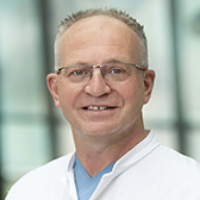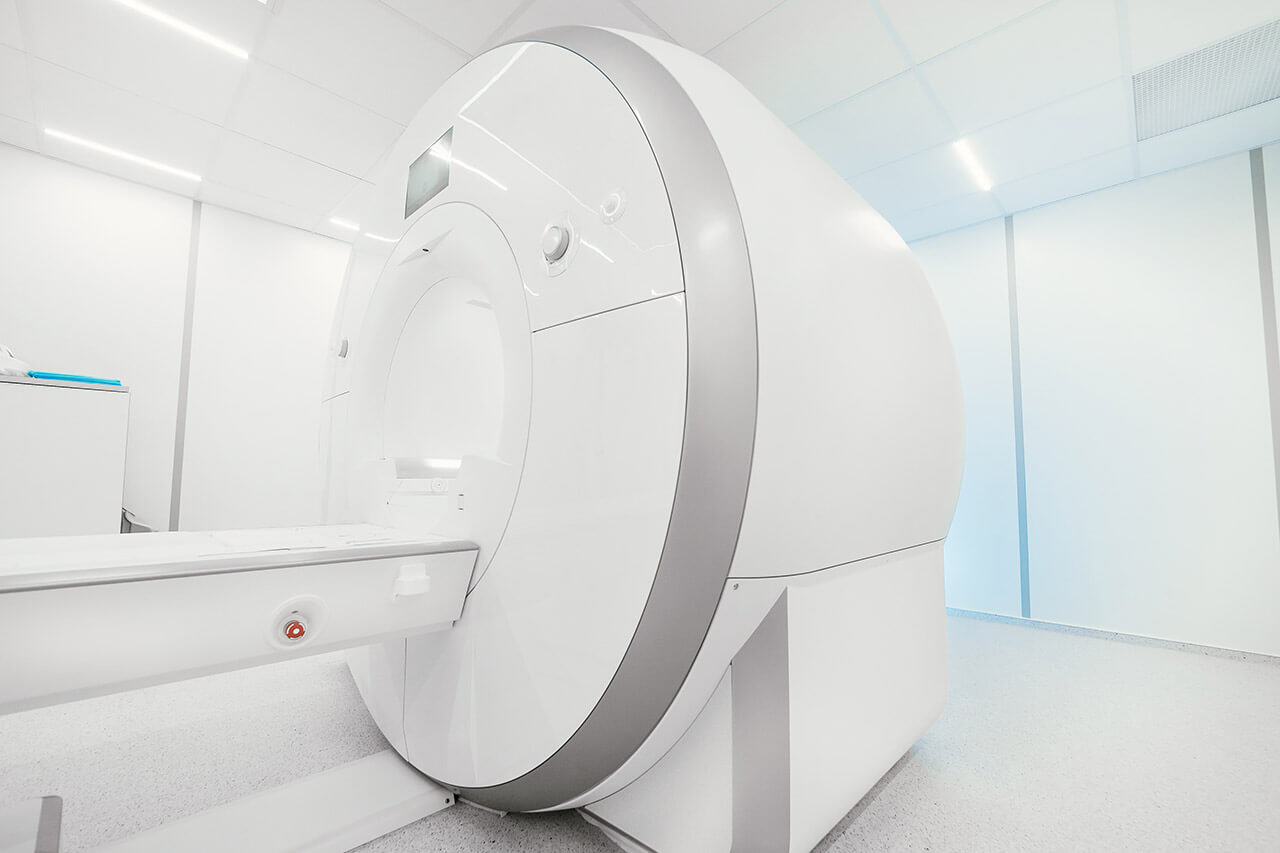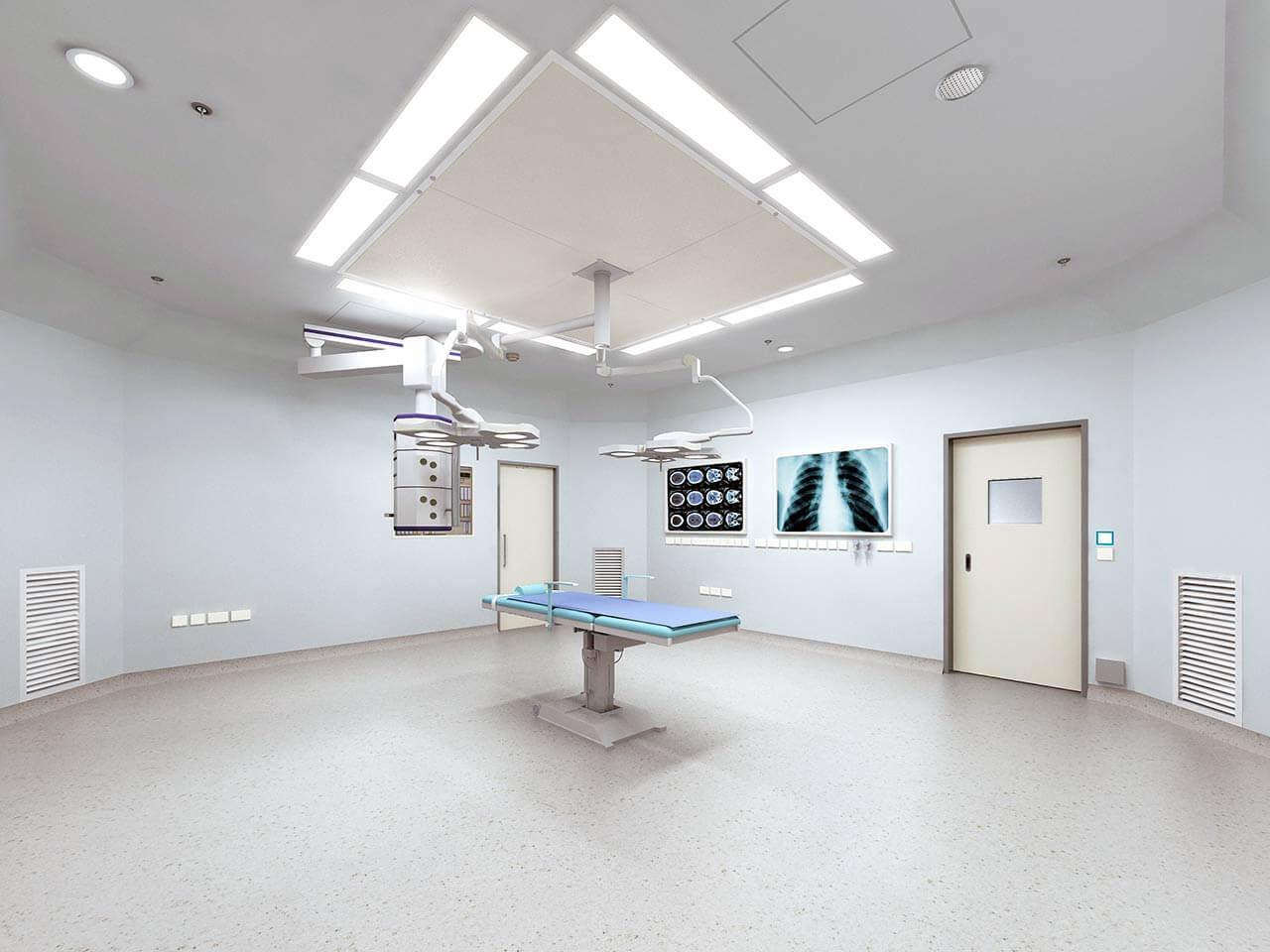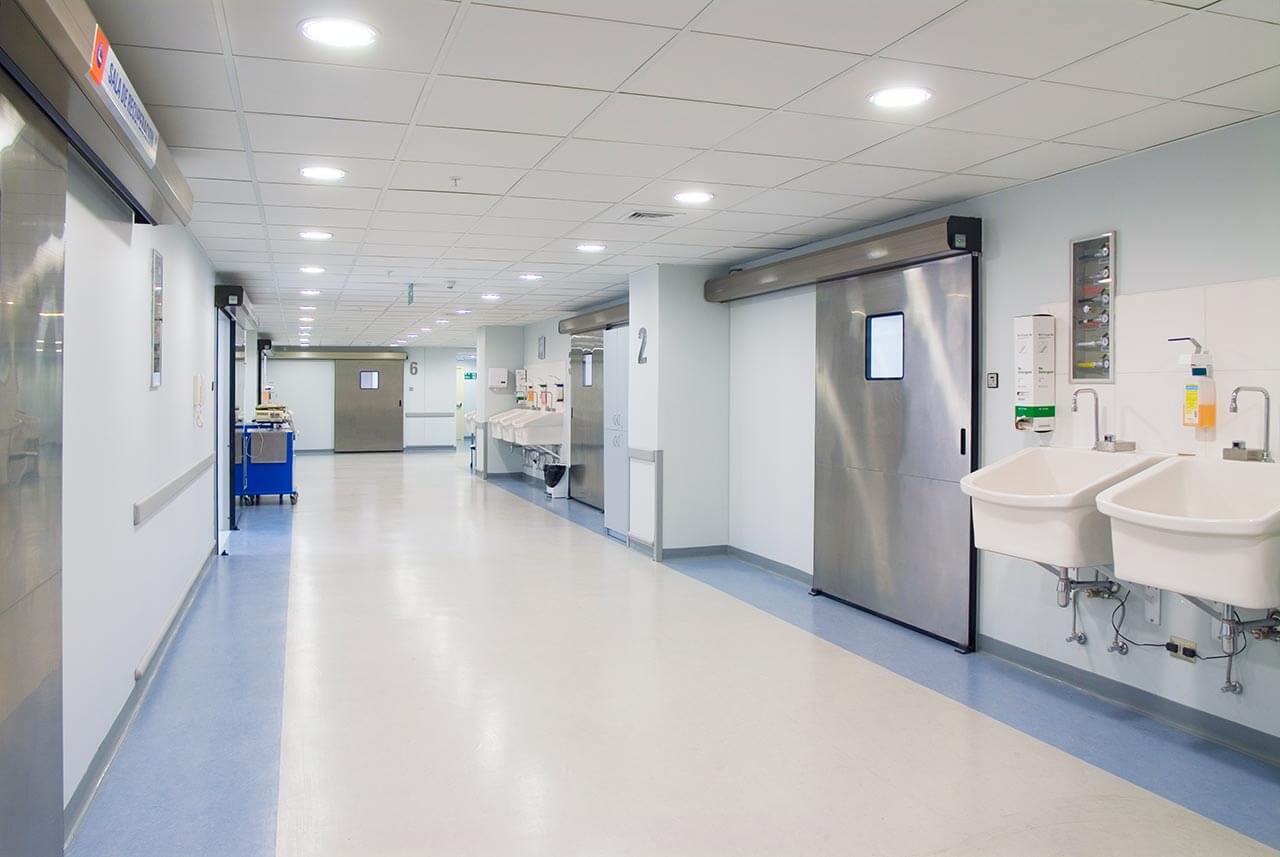
About the Department of General and Abdominal Surgery, Hernia Surgery, Colorectal, Endocrine and Vascular Surgery at Eichsfeld Hospital Heilbad Heiligenstadt
The Department of General and Abdominal Surgery, Hernia Surgery, Colorectal, Endocrine and Vascular Surgery at the Eichsfeld Hospital Heilbad Heiligenstadt provides the full range of medical services in the areas of its specialization. A highly qualified team of the department's surgeons performs various operations for gastrointestinal diseases, hernias, pathologies of the rectum, large intestine and anus, as well as surgical interventions for thyroid and parathyroid diseases, vascular pathologies. The operating rooms of the medical facility have advanced technical equipment, so doctors in most cases have the opportunity to perform low-traumatic interventions, excluding extensive incisions in the skin and soft tissues. Whenever required, the highly professional department's surgeons also perform open surgeries, after which the patient receives proper care aimed at the earliest possible elimination of the pain syndrome and improvement of his well-being. The department's specialists are convinced that the best treatment indicators can be obtained only through an individual approach to each patient and his clinical case. Therefore, they devote sufficient time to accurate planning of the upcoming surgery and, if possible, choose sparing minimally invasive techniques. The surgeons working in the department follow current clinical protocols and recommendations of professional societies, so patients can count on effective and safe surgical treatment. The department is headed by Dr. med. Lutz Pickart.
The department performs a large number of surgical interventions for digestive diseases. Of particular interest is the treatment of stomach, bowel, gallbladder, and liver cancers. Prior to the surgical treatment, the patient undergoes the full range of necessary diagnostic tests, including ultrasound scanning, endoscopic procedures, and laboratory tests. The specialists in the field of gastroenterology and hepatology are often involved in the diagnostic process. If the patient requires surgery, doctors begin planning the upcoming treatment. First of all, the department's surgeons consider minimally invasive surgical interventions, and open surgery becomes an option of choice only in especially complex clinical cases. Low-traumatic operations are a priority therapeutic solution, since surgical access is provided through one or several small skin incisions of 0,5-1,5 cm in size instead of opening the abdominal wall, which is required in classical open surgery. Special instruments are inserted through small incisions. With their help and under the guidance of a miniature video camera, which transmits images of the operating field to a large screen, the surgeon performs the necessary manipulations. Minimally invasive surgery is performed under general anesthesia. After this treatment, the patient experiences a mild pain syndrome, recovers quickly and can leave the hospital within a few days after the intervention. In addition, scars after laparoscopic surgery are almost invisible.
Hernia treatment is an integral part of the department's clinical practice as well. The department's surgeons specialize in surgery for inguinal, umbilical, incisional, diaphragmatic hernias, as well as epigastric hernias. The department has the quality certificate of the German Hernia Society (DHG), which confirms compliance with all modern standards and requirements for the provision of medical care to patients with the above-mentioned pathologies. The department's surgical options include hernioplasty with and without special mesh implants, but in most cases the first option is still preferred. Prior to the surgery, the patient undergoes ECG, chest X-ray, ultrasound scanning, laboratory tests to eliminate health risks during the intervention. The department's surgeons perform hernioplasty under general anesthesia and with the use of laparoscopic techniques, which exclude traumatic opening of the abdominal wall. After surgery, the patient receives the appropriate medical care. As a rule, it is allowed for the patient to move freely the very next day after the operation. Until the surgical wound is completely healed, the department's surgeons strongly recommend that patients avoid strenuous physical exertion and do not lift weights.
In the field of colorectal surgery, the focus is on the treatment of hemorrhoids, fecal incontinence, rectocele, anal fissures and abscesses. Hemorrhoids are one of the most common proctologic diseases, and due to the delicacy of the pathology, many patients postpone a visit to the doctor until the last, which complicates the further treatment process. Whenever possible, hemorrhoids are treated with the use of conservative methods, but the department's surgeons still often have to resort to surgical interventions. The specialists of the medical facility successfully perform hemorrhoidectomy according to the Longo procedure for the treatment of stage 2 and 3 hemorrhoids. There is no need for long-term hospitalization after the operation, and the patient can leave the hospital within several days.
The team of the department's endocrine surgeons admits patients with thyroid and parathyroid diseases. Special attention is paid to surgery for thyroid nodules and thyroid cancer. There is a high risk of damage to the recurrent laryngeal nerves during thyroid surgery, as a result of which the patient may develop voice and speech disorders. Therefore, the department's endocrine surgeons perform thyroid and parathyroid surgery using state-of-the-art intraoperative neuromonitoring systems. In addition, the department's doctors successfully use an advanced radiofrequency scalpel during thyroid surgery, which allows them to make a minimal skin incision in the neck, after which the scar is almost invisible.
The department's therapeutic offer is complemented by the performance of various surgical procedures for vascular diseases. Doctors are especially competent in performing surgical procedures in patients suffering from carotid artery stenosis, obliterating atherosclerosis of the arteries of the lower extremities, acute occlusions of the arteries of the pelvis and lower extremities, aneurysms, deep vein thrombosis, varicose veins and diabetic foot syndrome. As a rule, surgeons perform endovascular surgery using special catheters. The department's vascular surgeons also have successful experience in performing hybrid vascular surgeries, combining the use of sparing endovascular and classic open techniques.
The department's main clinical focuses include:
- General and abdominal surgery
- Laparoscopic, minimally invasive and open surgical interventions for diseases of the stomach, large and small intestines, liver, gallbladder, biliary tract, including surgery for the resection of gastrointestinal malignancies
- Hernia surgery
- Minimally invasive surgery for inguinal, umbilical, incisional, diaphragmatic hernias and epigastric hernias
- Colorectal surgery
- Minimally invasive surgery for hemorrhoids, fecal incontinence, rectocele, anal fissures and abscesses
- Endocrine surgery
- Minimally invasive thyroid and parathyroid surgery using intraoperative neuromonitoring and advanced radiofrequency scalpel
- Vascular surgery
- Interventions for carotid stenosis to prevent stroke
- Interventions for obliterating atherosclerosis of the arteries of the lower extremities
- Interventions for vascular occlusions in the upper and lower extremities
- Interventions for aneurysms
- Interventions for deep vein thrombosis
- Interventions for varicose veins
- Interventions for diabetic foot syndrome
- Dialysis access formation
- Other surgical services
Curriculum vitae
Postgraduate Training and Professional Career
- 1988 Admission to medical practice.
- 1990 Graduation thesis defense.
- 1988 - 1993 Assistant Physician, District Hospital Bad Langensalza.
- 1993 - 1994 Internship, Department of General Surgery at the Hospital Erfurt.
- 1994 Board certification in Surgery.
- 1994 - 2000 Resident, Department of Surgery, Hufeland Hospital Bad Langensalza.
- 2000 - 2004 Senior Physician, Department of Surgery, Hufeland Hospital Bad Langensalza.
- 2005 Internship, Department of General and Abdominal Surgery, Vascular Surgery, University Hospital Magdeburg.
- 2005 Board certification in Abdominal Surgery.
- 2004 - 2017 Managing Senior Physician, Department of General and Abdominal Surgery, Colorectal Surgery, Hufeland Hospital Bad Langensalza.
- 2006 - 2017 Head Physician of the Department of Surgery, Hufeland Hospital Bad Langensalza.
- 2011 Specialization in Special Abdominal Surgery.
- 2017 Additional qualification in Colorectal Surgery.
- Since 2017 Head Physician of the Department of General and Abdominal Surgery, Hernia Surgery, Colorectal, Endocrine and Vascular Surgery at the Eichsfeld Hospital Heilbad Heiligenstadt.
Photo of the doctor: (c) Eichsfeld Klinikum





